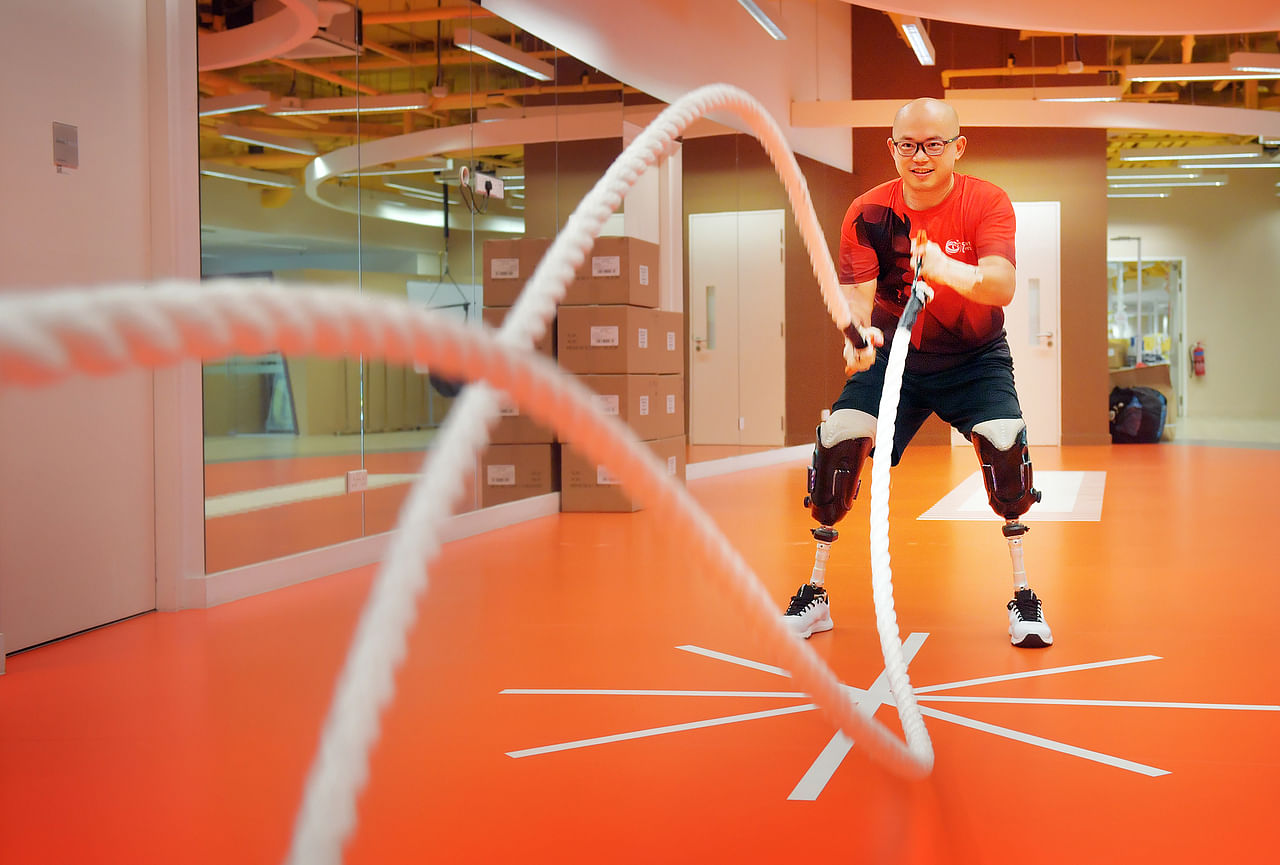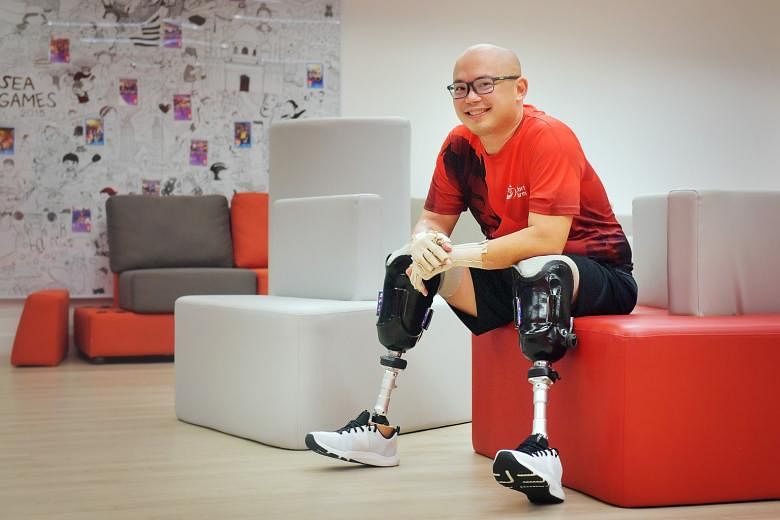SINGAPORE - After more than 10 surgeries in three years, Mr Jason Leong was left with four fingers on each hand, and had below-knee amputations on both legs.
The 44-year-old had suffered from gangrene, which is the death of body tissue due to a lack of blood flow or a serious bacterial infection. It commonly affects the arms and legs, including the toes and fingers.
But the avid sports lover and former physical education (PE) teacher - who was in an intensive care unit (ICU) in April 2019 - was determined to bounce back.
Mr Leong, who is currently with a Sport Singapore (SportSG) team to help people with disabilities (PWDs) enjoy sports, can jog and squat with a 40kg weight. Fitted with prosthetics, he takes part in high-intensity training sessions five days a week.
He hopes his journey can inspire others like him to do the same, with Singapore's roll-out of a Para Sport Academy on Thursday (March 10) to create more opportunities for PWDs to pursue sporting ambitions at a competitive level.
The then PE teacher's life changed on April 3, 2019. He experienced chills and soon developed a fever of 41 deg C. In the evening, he noticed traces of blood in his urine and headed to the hospital with his wife.
By the time he reached the hospital, he was drifting in and out of consciousness. Soon after midnight, his fingers, toes and lips turned blue and he was admitted into the ICU. By afternoon the next day, he had fallen into a coma and his liver, lungs and kidney began to fail.
"I was dying, fast. They prepared my family for the worst. They even told my wife to say goodbye," Mr Leong told The Straits Times on Tuesday (March 8).
The cause was due to a common bacteria, Streptococcus B, which usually results in sore throats but had entered his bloodstream.
In a last ditch attempt to save him, the doctors prescribed a combination of drugs. Fortunately, the treatment worked.
But his trauma was far from over. Two toes from his left foot were grafted onto his right hand to preserve their use. In late June 2019, doctors had to amputate his right foot, and in November his left one.
The father of two children said: "I was literally on the chopping board, bits of me being chopped off, bit by bit… Everything I thought I was good at, being a husband, a father, a man, all flew out of the window.
"I didn't know how to interact with my loved ones anymore."
But, with the strong support of his family, friends and the medical team, Mr Leong slowly regained his strength through endless hours of physiotherapy and occupational therapy.
In April 2020, he returned to school to co-teach PE with the help of another teacher, while still in a wheelchair. By October that year, he was able to move around independently, without a cane, with prosthetics.
"There's a grief cycle," Mr Leong said of his recovery process.
"I experienced denial, anger, everything. But I also realised that I kind of got my life back, I didn't die, and I'm still here. And one of the greatest privileges was to be able to be my family.
"So that was my starting point. And what helped was that my wife and kids never saw me as anything less," he added.
Determined to go back to sport, Mr Leong kept track of numerous para-athletes worldwide, learning different kinds of exercises as he adapted to new ways of doing things.

He also enrolled in an adaptive trainer course online, which teaches individuals how to train PWDs.
Currently with the SportCares team at SportSG as a senior manager, Mr Leong hopes to give back to help more PWDs.
"I hope to use my own experience to contribute in any way I can, starting with helping to design and teach programmes for operations staff and sports champions at the ActiveSG gyms on how to meaningfully engage PWDs," he said.
Beyond disability sports, the SportCares team - through its Communities of Care initiative - also helps its partners enhance their existing sports offerings.
SportCares provides regular training for coaches so that they are up-to-date with the latest developments.
"There is just so much we can do together, sport has this magical ability to heal and bond people, and during my darkest times, it gave me something to look forward to," Mr Leong said.
"Recently, I even managed to do a hike in Switzerland."


